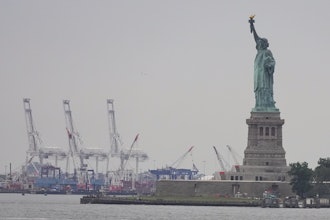There’s been a lot to unravel when it comes to the impacts of Trump’s budget proposal on the manufacturing sector, but one regulatory agency might just have enough supporters – actually among the companies it regulates – to get the president to change his mind.
That’s the hope anyway, Bloomberg reports, in its recent article describing the U.S. Chemical Safety Board, an agency targeted for elimination in the President’s preliminary discretionary budget.
The CSB draws $11 million federal dollars annually, which is sort of small potatoes in comparison to other regulatory agencies facing the ire of Trump. For perspective, the EPA’s operating budget was $8.1 billion in 2016. The role of the CSB is to investigate the causes of industrial accidents and then determine ways to prevent their recurrence.
The agency does not impose fines and create regulations, but it has resulted in some serious preventative benefits that tended to fly under the radar. The article points out a 2012 fire at a Chevron refinery where the CSB uncovered that a pipe being used was “subject to corrosion and rupture because of the materials it carried.” Though there were no rules against using that kind of pipe, the industry revised its practices based on the findings.
And while many in the industry typically dread being subject to any sort of federal investigation, some experts believe that without the CSB identifying problems, plants could see potential for accidents and increased liability. And while federal agencies are often criticized for being reactionary, identifying dangerous industry practices after the fact have resulted in changes like the one that took place after a Texas explosion killed 15 workers in 2005 – the CSB determined that having workers in temporary trailers placed within danger zones inside a plant site had unnecessarily increased the death toll in the incident, so standard practices changed to relocate them.
Glenn Ruskin, communications director for the American Chemical Society, told Bloomberg the agency was “vitally important” and that it’s an honest broker at identifying problems, and the industry appreciates having that.
That said, we’ll have to wait and see if the industry goes to bat for its unlikely friend, or if the group is even quite as well liked as Bloomberg is suggesting. Reuters sought comment from major oil and gas refiners such as Exxon, BP and others, all of whom either did not respond or declined to comment.
I’m Anna Wells and this is IEN Now.






















